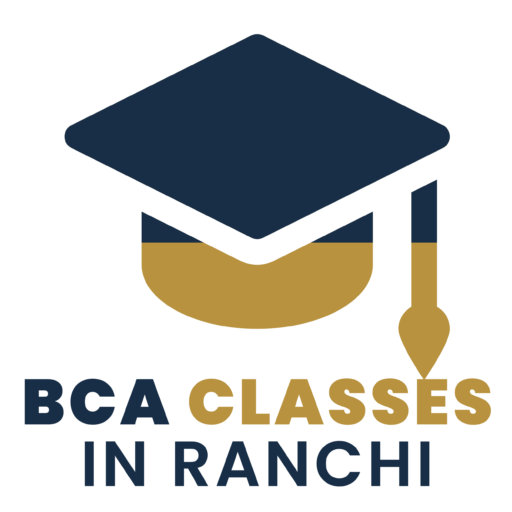Understanding the Importance of Topic Selection
Selecting an appropriate project topic is a critical aspect of the educational journey for Bachelor of Computer Applications (BCA) students. The process of choosing the right topic not only serves as a foundation for the project but also significantly enhances the overall learning experience. A well-chosen topic fosters deep engagement, encouraging students to immerse themselves in research, development, and practical applications. This immersion can ignite a genuine interest in the subject matter, leading to improved motivation and academic performance.
Furthermore, selecting a relevant project topic can serve as a platform for practical skill development. It provides students the opportunity to apply theoretical knowledge to real-world scenarios, thus bridging the gap between academia and industry. Engaging in projects that solve actual problems or contribute positively to the community can enhance a BCA student’s resume, showcasing their capabilities and commitment. In conclusion, choosing the right project topic is essential for BCA students, as it significantly influences their learning outcomes, shapes their interests, and lays the groundwork for their future professional journey.
Factors to Consider When Choosing a Project Topic
Selecting an appropriate project topic is paramount for BCA students as it significantly influences the overall quality of their academic work. There are several factors that should be thoughtfully considered during this process. First and foremost, students need to understand their personal interests and strengths in relation to computer applications. A topic aligned with one’s passion will not only foster motivation but also lead to a deeper engagement with the material, ultimately enhancing the final output.
Another critical aspect to ponder is the scope of the chosen topic. It is essential for students to examine whether the project can be feasibly completed within the allotted timeline and resource availability. A topic that is too broad may become overwhelming, while one that is excessively narrow might not offer enough depth for thorough exploration. Hence, a balanced approach is necessary while delineating the parameters of the project.
The availability of resources and references plays a vital role as well. Students should ensure that sufficient academic literature, software, and tools are accessible to support their work. This step not only aids in gathering data but also enhances the reliability of the findings. Moreover, considering current relevance is crucial, as it helps in engaging with emerging trends and technologies within the computer applications domain. A contemporary topic not only adds value to the research but also broadens future career prospects.
More
Furthermore, practical tips such as brainstorming potential ideas, discussing with peers or mentors, and reflecting on past experiences can be significantly beneficial. Formulating questions to guide the decision-making process, such as “What problem am I passionate about solving?” or “How does this topic contribute to my field?” can lead to a well-considered choice. By carefully analyzing these factors, BCA students can select a project topic that is not only meaningful but also sets a solid foundation for their success.

Exploring Popular Project Ideas for BCA Students
For BCA students, selecting an engaging project idea is crucial not only for academic success but also for gaining practical knowledge in the field of computer applications. The following curated project ideas span various domains, ensuring that students have ample choices that align with their interests and career goals.
Web Development: A popular area for BCA projects, web development encompasses creating engaging and user-friendly websites. Students may consider developing a Portfolio Management System that allows users to manage their investments, or a Blog Platform where users can write, edit, and manage articles. These projects enhance skills in HTML, CSS, JavaScript, and back-end technologies such as PHP or Node.js, providing hands-on experience in full-stack development.
Mobile Applications: With the growing dependency on smartphones, mobile app development remains a trending choice. Projects such as a Health Tracker App to monitor fitness activities or a Recipe App that allows users to discover, save, and share recipes can be fruitful. These projects will foster understanding of programming languages like Java or Swift, as well as frameworks such as React Native, enriching students’ mobile development expertise.
More
Data Science: As organizations increasingly rely on data-driven decisions, projects in data science are highly relevant. A feasible project could involve creating a Predictive Analytics Tool that identifies trends in datasets, or a Customer Segmentation Analysis that helps businesses understand their clientele better. Students will get hands-on experience with languages like Python and tools such as TensorFlow or R, crucial for any aspiring data scientist.
Cybersecurity: In an era where data breaches are common, projects focusing on cybersecurity are substantially pertinent. Students may develop a Secure File Transfer Protocol or a Vulnerability Assessment Tool that helps in identifying threats in a system. Through such initiatives, knowledge of network security principles and risk assessment techniques can be greatly enhanced.
Artificial Intelligence: AI remains a leading innovation in technology. Projects like Chatbots for customer service or Recommendation Systems for e-commerce websites allow students to delve into machine learning. These projects provide vital experience in algorithms and neural networks, foundational to much of modern computer applications development.<!–How to Validate and Finalize Your Project Topic
The selection of a project topic is a critical step for BCA students, as it sets the foundation for their academic and professional trajectory. To validate and finalize a chosen project topic effectively, it is essential to engage in systematic approaches that allow for thorough exploration and refinement of your ideas. Begin by conducting preliminary research. This phase involves gathering relevant information from academic journals, articles, and existing projects to determine the feasibility and relevance of your topic. Focus on identifying gaps in existing literature that your project could address, as this can further assure you of the significance of your chosen area.
Another crucial strategy is to engage in discussions with mentors or peers. Such dialogues can provide valuable insights and perspectives that may not have been considered initially. Mentors, in particular, can offer guidance based on their experience, helping you to refine your topic to align with both academic standards and industry needs. Similarly, involving peers in discussions may lead to collaborative ideas or alternative approaches that can strengthen your project’s foundation.
Seeking feedback from potential mentors, classmates, or industry professionals can enhance the validation process. Present your ideas in a clear and concise manner, and be open to constructive criticism. This collaborative approach can further ensure that your project topic holds academic integrity and relevance.
Conclusion
Moreover, formulating a well-structured project proposal is vital. This proposal should outline the objectives, scope, and methodology of your project, providing clarity for both yourself and those evaluating your work. Ensure that your topic aligns with the academic guidelines and requirements of your BCA program; this step is essential in confirming that you are on the right track towards successfully finalizing your project topic.
Phone Number: +91-7488456170
Email ID: abhishek@eepl.me
Our Platforms:
Digilearn Cloud
EEPL Test
Live Emancipation
Follow Us on Social Media:
Instagram – EEPL Classroom
Facebook – EEPL Classroom
Stay connected and keep learning with EEPL Classroom !








